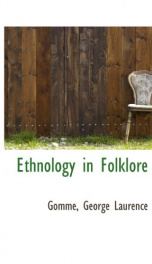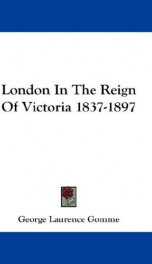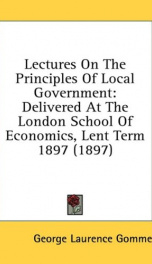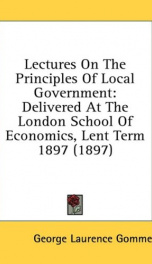ethnology in folklore

Purchase of this book includes free trial access to www.million-books.com where you can read more than a million books for free. This is an OCR edition with typos. Excerpt from book: 41 CHAPTER III THE MYTHIC INFLUENCE OF A CONQUERED RACU It appears, then, that the influence of a conquered race does not die out so soon as the conquerors are established. Their religious customs and ritual are still observed under the new regime, and in some cases, as in India, very little, if any, attempt is made to disguise their indigenous origin. Another influence exerted by the conquered over the conquerors is more subtle. It is not the adoption or extension of existing customs and beliefs, or the evolution of a new stage in custom and belief in consequence of the amalgamation. It is the creation of an entirely new influence, based on the fear which the conquered have succeeded in creating in the minds of the conquerors. Has anyone attempted to realise the effects of a permanent residence of a civilised people amidst a lower civilisation, the members of which are cruel, crafty, and unscrupulous ? In some regions of fiction, such as Kingsley's ' Hereward' and Lytton's ' Harold,' a sort of picture has been drawna picture drawn and coloured, however, in times far separated from those which witnessed the events. Fennimore Cooper has attempted the task with better materials in his stories of the white man and his relations to the Red Indians. But by far the truest accounts are to be found in the dry records of official history. One such record has been transferred to the archives of the Anthropological Institute,1 and it would be described by any ordinary reader as a record of the doings of demons. Of course this phraseology is figurative. But figures of speech very often survive from the figures of the ancient mythic conceptions of actual events, and though we should simply style the doings of the Tasmanians fighting against the Whites demoniacal as an appropria...
Info about the book
Author:
Series:
Unknown
ASIN:
B008766T4U
Rating:
5/5 (1)Your rating:
0/5
Languge:
English
Users who have this book
Users who want this book
What readers are saying
What do you think? Write your own comment on this book!
write a commentif you like ethnology in folklore try:
Do you want to read a book that interests you? It’s EASY!
Create an account and send a request for reading to other users on the Webpage of the book!







